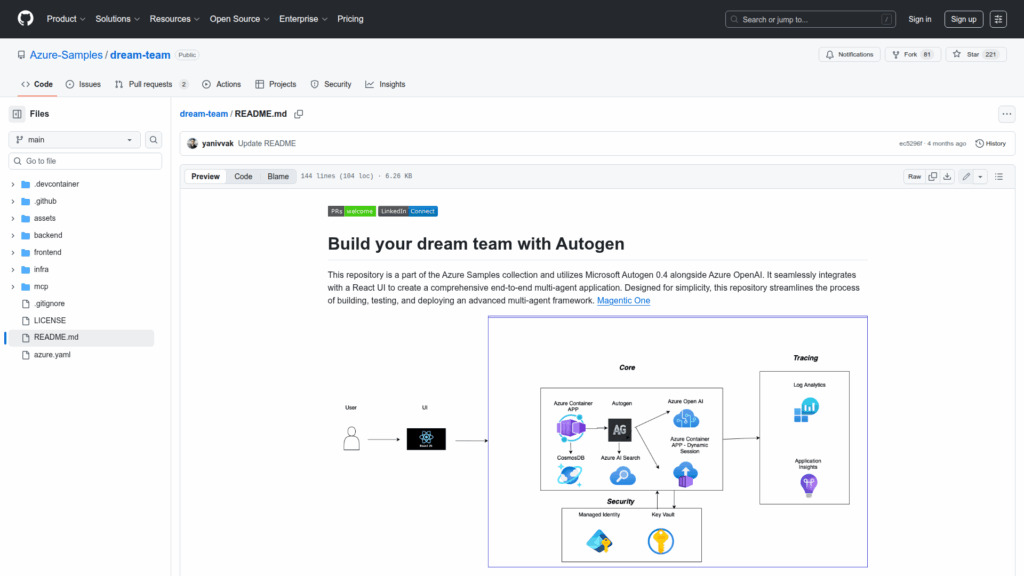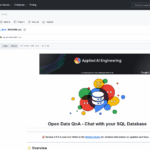dream-team
Basic Information
This repository is an Azure Samples project that demonstrates how to build an end-to-end multi-agent application using Microsoft Autogen (including Magentic One) together with Azure OpenAI and a React-based UI. It provides a reference architecture and working example that combines a Python backend and a JavaScript frontend to show how multiple agents can be composed, orchestrated, and deployed to Azure. The repo is intended for developers who want a complete sample for testing, running, and deploying advanced multi-agent workflows with event-driven, asynchronous Autogen components. It also surfaces deployment patterns such as one-line azd up via the Azure Developer CLI and shows how to integrate AI Search ingestion, managed identities, secure code execution via containerized sessions, and observability tooling for agent tracing.








